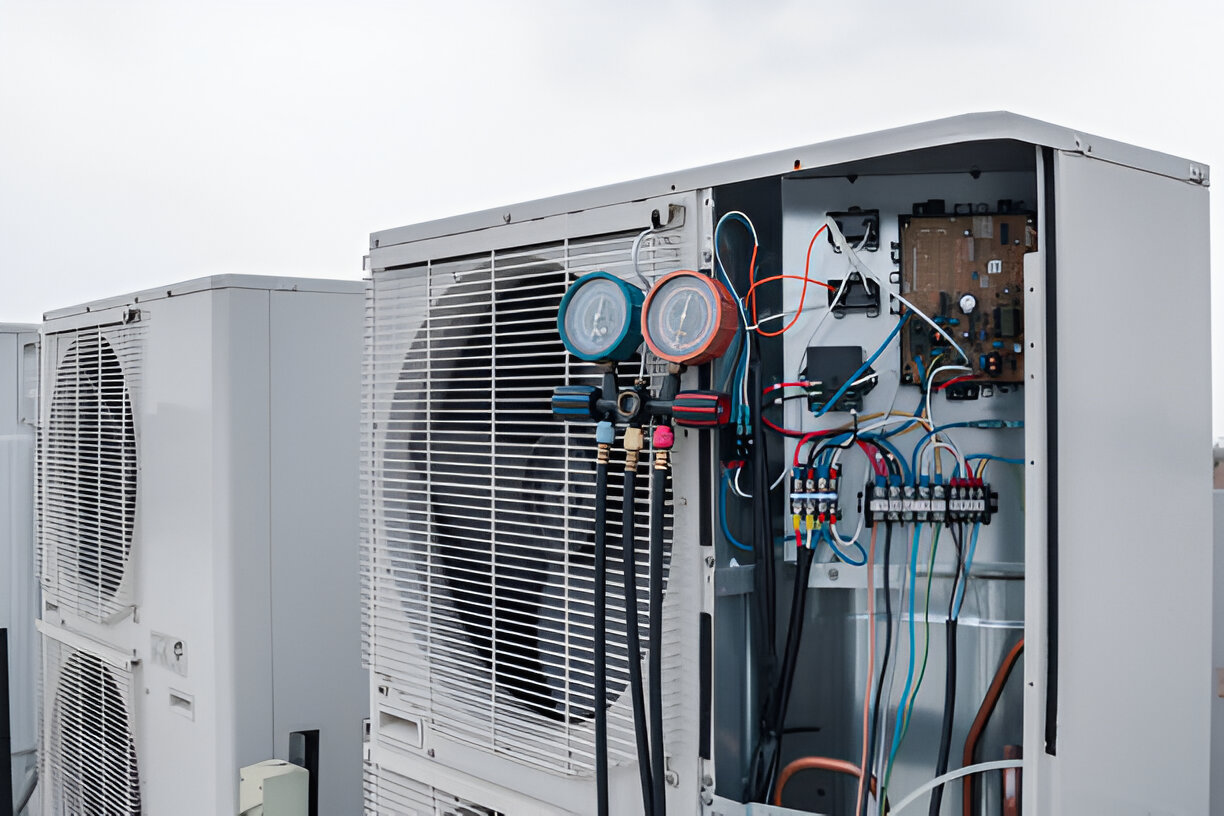
Heat Pump Tune-Up in Delta, PA
Keeping your heat pump tuned and running reliably is one of the smartest investments for year-round comfort in Delta, PA homes. Heat pumps provide both heating and cooling, so Delta residents rely on them through humid summers and cold, sometimes icy winters. A focused heat pump tune-up detects small problems before they become costly breakdowns, restores efficiency, and extends equipment life.
Why a tune-up matters in Delta, PA
Delta experiences humid summers and freezing winters with freeze thaw cycles and seasonal dust, pollen, and agricultural debris. Those conditions create extra strain on heat pump components: outdoor coils can clog, refrigerant can leak slowly, and defrost cycles work harder in colder months. A tune-up adapts the system to local conditions, reduces energy waste, and lowers the risk of mid-season failures when you need comfort most.
Common heat pump problems in Delta, PA
- Reduced airflow from dirty filters and blocked vents, causing poor heating or cooling and short cycling
- Low refrigerant from small leaks, leading to decreased capacity and potential compressor damage
- Loose or corroded electrical connections that create intermittent operation or tripped breakers
- Incorrect thermostat calibration or control wiring that causes inconsistent temperatures
- Worn motors, bearings, or fan assemblies that produce noise or fail under heavy loads
- Ice build-up on the outdoor unit during winter due to defrost control issues
- Clogged condensate drains that cause moisture damage or indoor humidity problems
Professional tune-up checklist — what technicians inspect and do
A complete heat pump tune-up follows a systematic checklist to ensure reliable, efficient operation. Typical inspections and tasks include:
- Airflow and filters
- Inspect and replace or recommend appropriate filters
- Check and measure airflow across the indoor coil
- Inspect ductwork for obvious gaps or blockages
- Refrigerant system
- Verify refrigerant charge and pressures to manufacturer specifications
- Check for signs of refrigerant leaks and perform leak detection if needed
- Inspect outdoor and indoor coils for dirt, corrosion, or damage; clean as necessary
- Electrical system and controls
- Tighten and inspect electrical connections, breakers, and fuses
- Test contactors, relays, capacitors, and safety switches
- Measure voltage and amperage to key components to spot stress or imbalance
- Thermostat and system controls
- Calibrate thermostat and verify correct setpoints and programming
- Test system response, staging, and smart control interfaces if present
- Moving parts and lubrication
- Inspect blower motor, fan motor, and bearings; lubricate where applicable
- Check belt condition and tension if the system uses belts
- Defrost cycle and reversing valve
- Test reversing valve operation and defrost controls for reliable winter performance
- Observe defrost cycle to ensure ice clears correctly without excessive runtime
- Safety and operational checks
- Inspect condensate drain and pan; clear clogs and verify proper drainage
- Test high and low pressure safety cutouts and emergency shutdown functions
- Run full heating and cooling cycles to confirm stable operation
Diagnostic steps explained simply
Technicians combine visual inspection with simple field tests to evaluate system health. They measure airflow, listen for unusual sounds, compare operating temperatures across the coil and duct register, and read electrical loads. Refrigerant checks confirm proper charge; if levels are low, leak detection follows. The combination of tests reveals whether performance issues are due to maintenance items (dirty coil, clogged filter), component wear (capacitor, motor), or refrigerant concerns that require repair.
Expected outcomes after a tune-up
A professional tune-up yields several tangible benefits:
- Improved efficiency and steadier temperatures, which often reduces energy use and monthly costs
- Increased reliability with fewer mid-season breakdowns and longer equipment life
- Quieter operation and reduced wear on key components like compressors and motors
- Faster recovery during extreme weather and better humidity control in humid months
- Early identification of developing issues so repairs can be scheduled at a convenient time
Signs you should schedule a tune-up now
If you notice any of the following in your Delta home, a tune-up is likely needed:
- Rising or unusually high energy bills without usage changes
- Short cycling or frequent on/off operation
- Reduced airflow or uneven room temperatures
- Ice build-up on the outdoor unit in winter or frost that does not clear
- New or worsening noises from the outdoor or indoor unit
Recommended frequency and seasonal timing
For heat pumps, the best practice for Delta homes is at least one professional tune-up per year, with two visits (spring and fall) preferred. A spring visit prepares the system for cooling season and checks for winter stress; a fall visit ensures efficient heating performance and verifies defrost operation. If your system is older, used heavily, or you own a high-efficiency model under warranty, follow manufacturer recommendations and consider biannual checks.
How tune-ups fit into a broader maintenance plan
Tune-ups work best when part of a regular maintenance plan. Routine membership plans typically include scheduled visits, filter replacement, priority service, and discounts on repairs or upgrades. Regular maintenance not only protects system warranties but also helps budget for eventual component replacement by identifying trends in performance over time.


Enjoy flexible financing options that make upgrading or repairing your HVAC system easy and budget-friendly.










